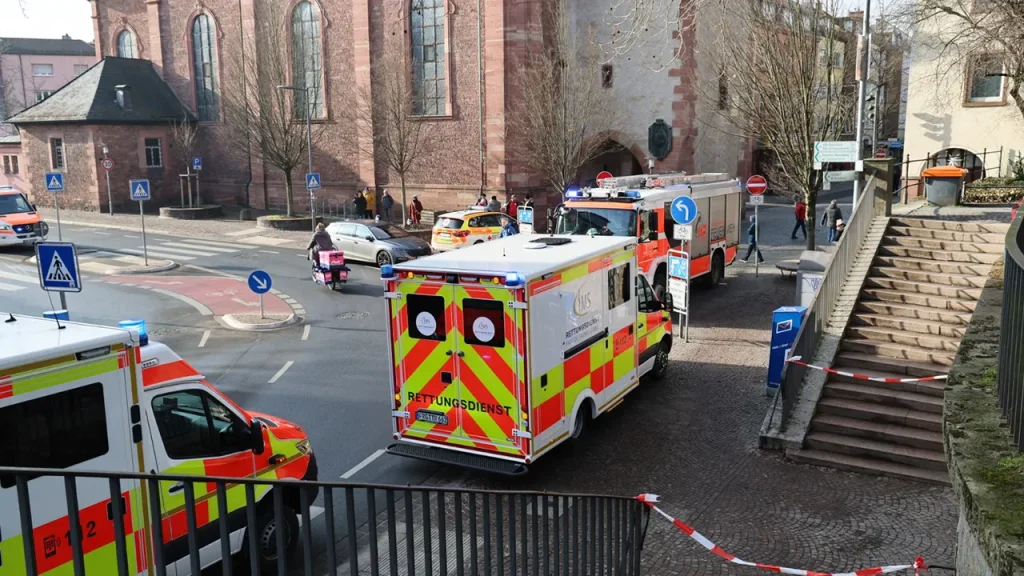The tranquil midday scene in a park in Aschaffenburg, Bavaria, was shattered by a brutal stabbing attack that left two dead and three injured, including two young children. The assailant, a 28-year-old Afghan national, targeted a group of kindergarten children, fatally stabbing a 2-year-old boy of Moroccan origin. A 41-year-old German man, who appears to have intervened to protect the children, was also killed. Three others, including a 2-year-old Syrian girl, sustained injuries but are expected to recover. The swift response of bystanders who chased the suspect led to his arrest just 12 minutes after the attack. The incident has sparked outrage and raised serious questions about Germany’s asylum and immigration policies, particularly a month before the national election where migration is a key issue.
The suspect’s background and the circumstances leading to the attack are under intense scrutiny. He arrived in Germany in November 2022, applied for asylum in early 2023, and subsequently informed authorities of his intention to leave voluntarily in December 2022. Following this, German authorities closed his asylum proceedings and instructed him to depart. However, the suspect remained in the country, raising concerns about the effectiveness of immigration enforcement. His history, marked by at least three previous instances of violence requiring psychiatric intervention, adds another layer of complexity to the case. Initial investigations have not revealed any evidence of radical Islamic motivations, suggesting a potential link to mental illness.
Chancellor Olaf Scholz expressed his condemnation of the attack, labeling it an “incomprehensible act of terror.” He voiced his frustration with the recurring nature of such violent incidents perpetrated by individuals seeking refuge in Germany. Scholz emphasized the need for immediate consequences and demanded a thorough investigation into why the suspect was still in the country despite being instructed to leave. He called for an end to “mistaken tolerance,” suggesting a need for stricter enforcement of immigration laws and a review of asylum procedures. The Chancellor’s strong words reflect the growing public concern over security and migration, particularly in light of the upcoming elections.
This attack is not an isolated incident, but rather the latest in a series of violent acts committed by immigrants and asylum seekers in Germany. In May, a knife attack by an Afghan immigrant in Mannheim resulted in the death of a police officer and injuries to four others. Another attack in Solingen in August, allegedly perpetrated by a Syrian national with suspected extremist ties, claimed the lives of three people. These incidents have fueled a national debate about immigration policy and the integration of refugees into German society.
The timing of the Aschaffenburg attack, just weeks before the national election, adds a significant political dimension. The issue of migration is expected to be a central theme in the campaigns, with various parties taking different stances on border control, asylum procedures, and integration policies. The attack is likely to intensify the debate and could influence voter sentiment. It remains to be seen how the government will respond to the growing pressure to strengthen its immigration policies and address public safety concerns.
The tragic events in Aschaffenburg underscore the challenges faced by Germany and other European nations in navigating the complex issues of migration, integration, and security. The incident highlights the need for effective screening processes for asylum seekers, robust mental health services, and efficient mechanisms for deporting individuals who pose a threat to public safety. Furthermore, it necessitates a broader conversation about societal integration and how to prevent marginalized individuals from resorting to violence. The attack serves as a stark reminder of the delicate balance between providing refuge to those in need and ensuring the safety and security of the host nation.

